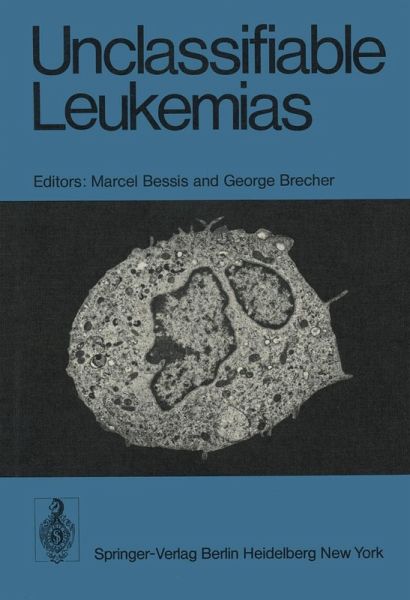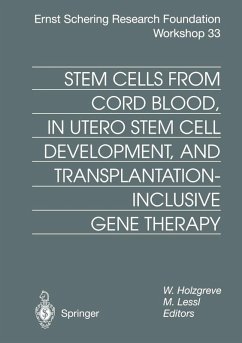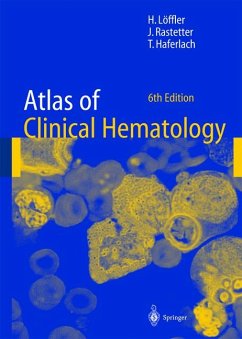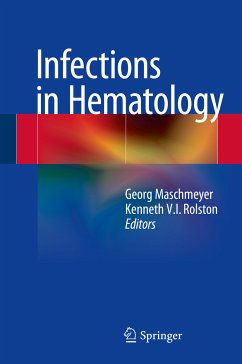
Unclassifiable Leukemias (eBook, PDF)
Proceedings of a Symposium, held on October 11 - 13, 1974 at the Institute of Cell Pathology, Hopital de Bicetre, Paris, France.
Redaktion: Bessis, M.; Brecher, G.
Versandkostenfrei!
Sofort per Download lieferbar
72,95 €
inkl. MwSt.
Weitere Ausgaben:

PAYBACK Punkte
36 °P sammeln!
Jean BERNARD * I should like to begin with an assumption and a paradox. The assumption is that leukemia is a disease of a stem cell characterized by pathologie alterations of that cell and its progeny. All present research and discussions are centered around the leukemic cell. So is this symposium, which would not take place except for our primary interest in the leukemic cell. This does not preclude, of course, consideration of other definitions and other approaches to the prOblem. By definition, then, the leukemic cells are abnormal cells and their metabolism and functions are presumed to be...
Jean BERNARD * I should like to begin with an assumption and a paradox. The assumption is that leukemia is a disease of a stem cell characterized by pathologie alterations of that cell and its progeny. All present research and discussions are centered around the leukemic cell. So is this symposium, which would not take place except for our primary interest in the leukemic cell. This does not preclude, of course, consideration of other definitions and other approaches to the prOblem. By definition, then, the leukemic cells are abnormal cells and their metabolism and functions are presumed to be abnormal. Yet, the classification of the different types of leukemias is based upon the characteristics of normal cells. We talk of "lymphoblasts" and "myeloblasts" as predominant cell types in leukemia. This leads to a double paradox. In the first pi ace it is clearly illogical to classify abnormal cells by their resemblance to normal cells, since their very abnormality consists in not being normal. Yet, as a second paradox, the classifica ti on has had the happy consequence of ai ding us in the treatment and prognosis of leukemia for the past 25 years. A more detailed analysis shows that the consequence of this paradox are complex: while there exists a useful correlation between cellular types, treatment and prognosis, numerous problems and difficulties persist. The most serious of them concems the "unclassified leukemias" which are the reason for this reunion.
Dieser Download kann aus rechtlichen Gründen nur mit Rechnungsadresse in A, B, BG, CY, CZ, D, DK, EW, E, FIN, F, GR, HR, H, IRL, I, LT, L, LR, M, NL, PL, P, R, S, SLO, SK ausgeliefert werden.












